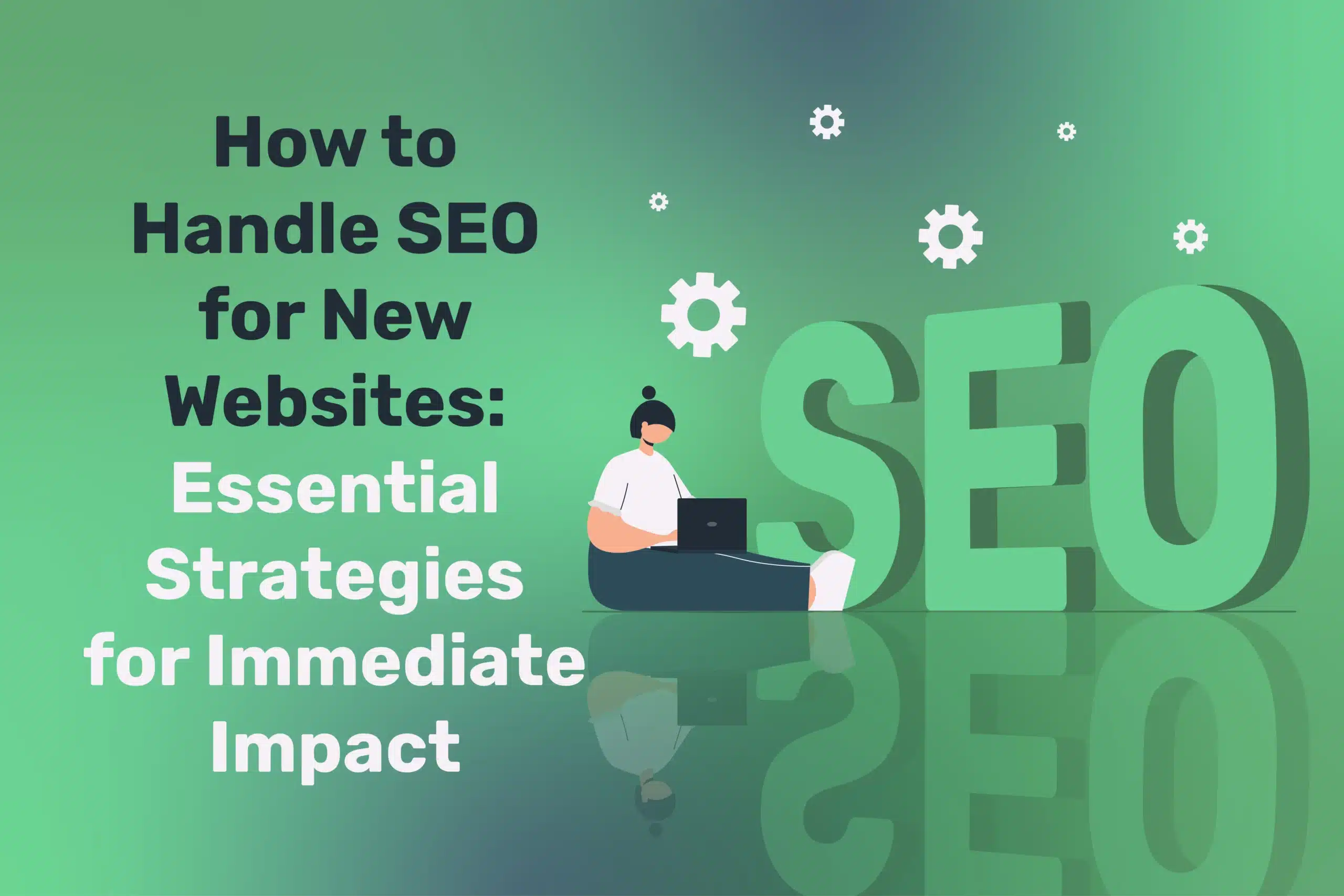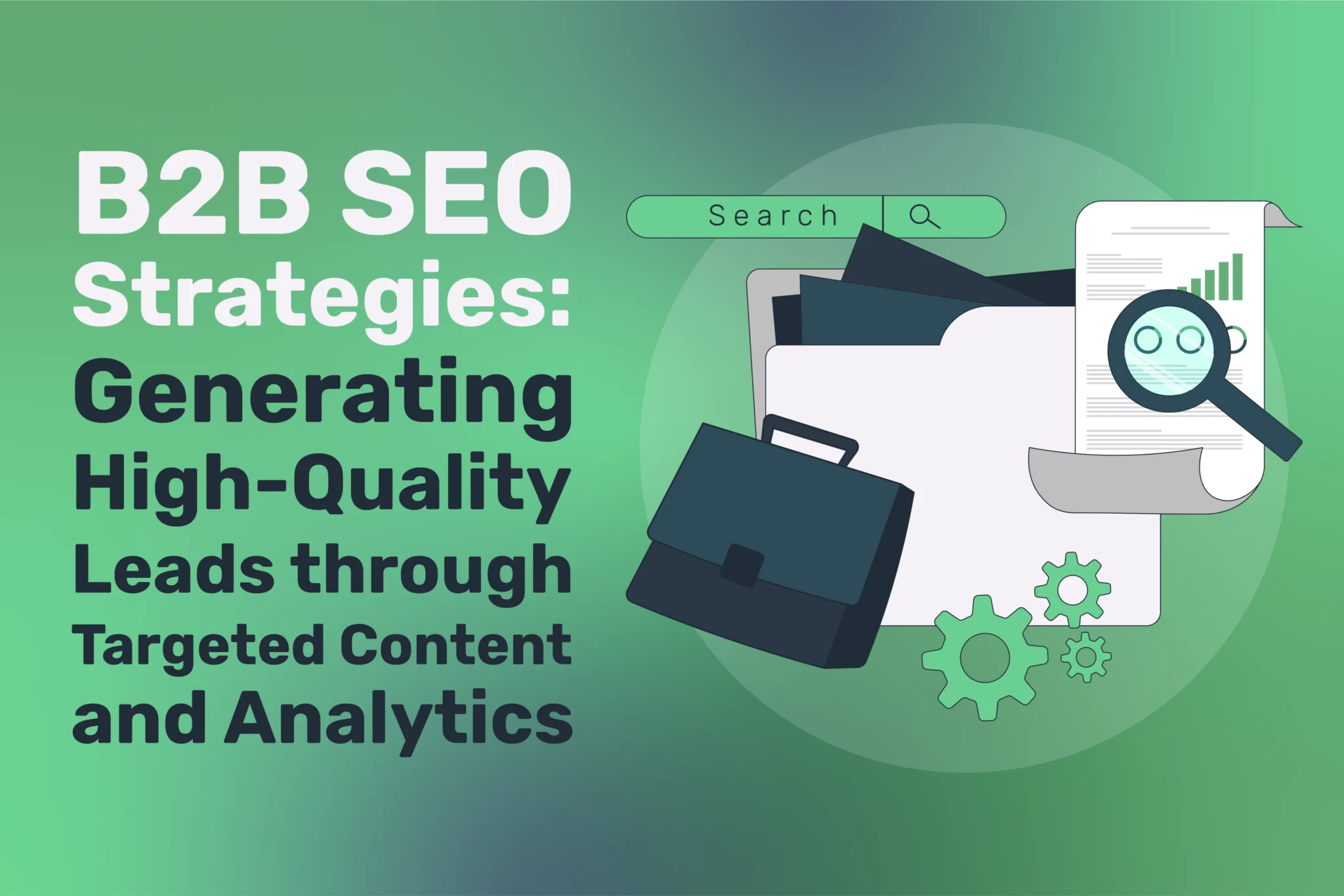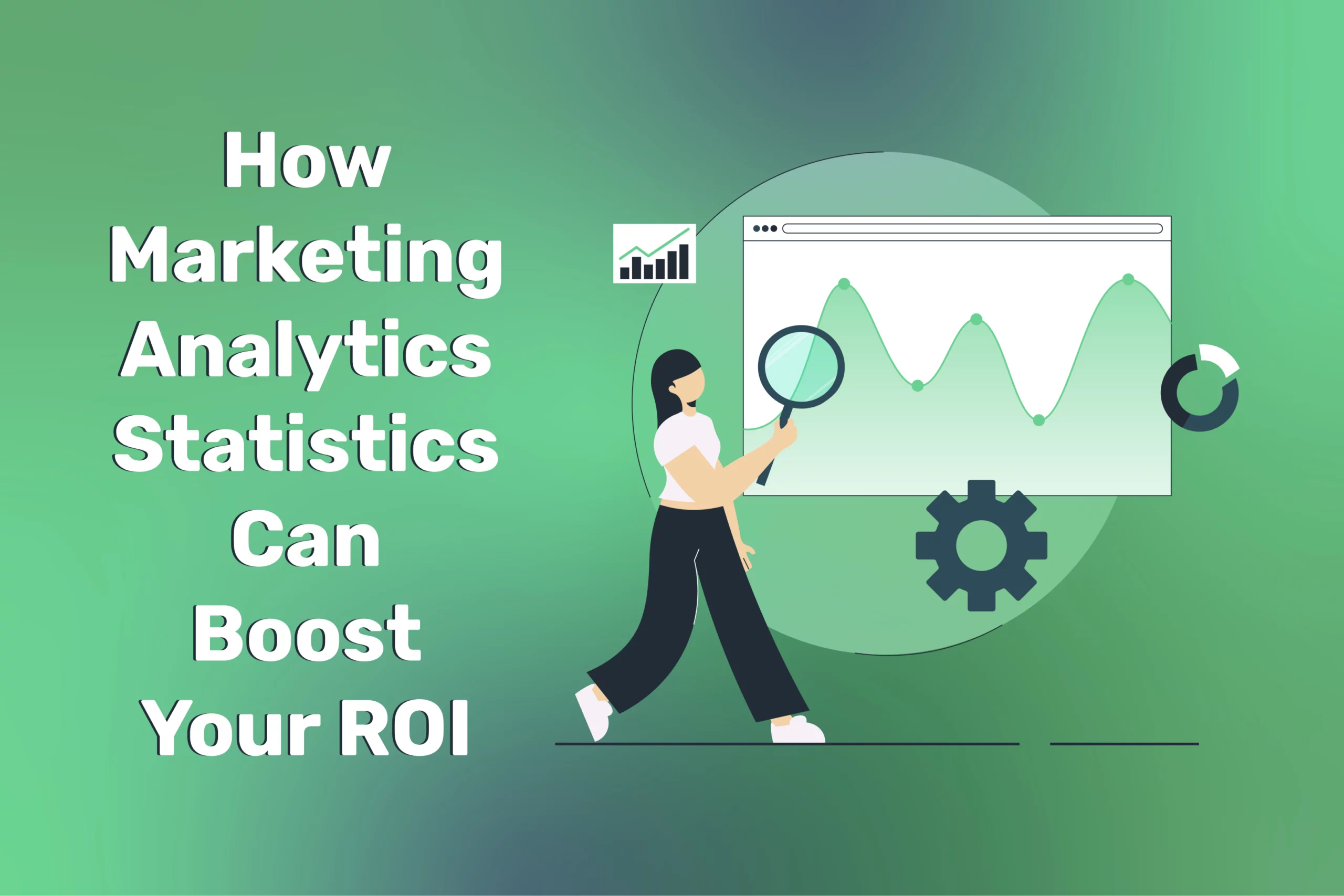
E-commerce SEO Services in 2025: Latest Stats, Best Practices & What Sets Top Agencies Apart
Table of Contents
In the increasingly competitive digital marketplace of 2025, e-commerce SEO Services have evolved from a supplementary marketing tactic to an essential business strategy. As online shopping expands across all sectors, the ability to appear prominently in organic search results directly impacts revenue, customer acquisition costs, and long-term business sustainability.
Implementing a comprehensive, data-driven SEO strategy has become the primary differentiator between sustained growth and stagnation for online retailers facing intensifying competition and ever-evolving search algorithms. This in-depth analysis examines the current state of e-commerce SEO, highlighting the latest statistics, proven best practices, and the distinguishing characteristics of agencies delivering exceptional results in this specialised field.
Latest E-commerce SEO Statistics (2025)
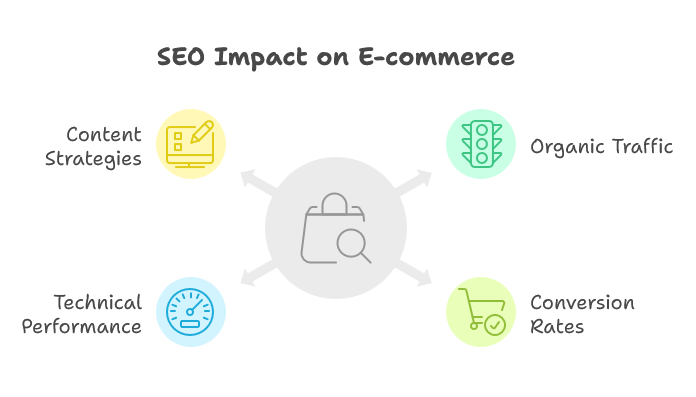
As the e-commerce landscape evolves, staying ahead in search rankings has become more crucial than ever for online retailers. In 2025, the impact of SEO on e-commerce performance is undeniable, with organic search emerging as the leading driver of revenue and customer engagement. This section dives into the most recent statistics highlighting the importance of SEO in driving e-commerce growth, from organic traffic and conversion rates to technical performance and content strategies. Understanding these trends is key for e-commerce businesses aiming to stay competitive in an increasingly digital world.
Organic Reach & Value
The data demonstrates the substantial value of organic search for e-commerce businesses:
- The average e-commerce brand ranks for 1,783 keywords and receives 9,625 organic monthly visits—traffic that would cost nearly £11,800 per month if purchased through paid search
- Organic search drives 40.2% of e-commerce revenue for successful online retailers, making it the highest-value traffic channel.
- Well-optimised product pages convert at 2.8 times the rate of their non-optimised counterparts.
- E-commerce sites with comprehensive content strategies see a 134% increase in organic traffic compared to product-only sites.
These figures highlight the significant return on investment that effective e-commerce SEO delivers compared to other digital marketing channels.
Conversion & Engagement Metrics
Conversion rates and user engagement statistics provide insight into the effectiveness of SEO-driven traffic:
- E-commerce SEO conversion rates range from 2.99% to 4.4%, varying by industry and product category
- The average add-to-cart rate is 6.69%, reaching peaks of 8.45% during high-demand periods
- Visitors from organic search view 3.2 times more pages per session than visitors from paid sources
- Returning visitors from organic search have a 23% higher average order value than first-time visitors
These engagement metrics demonstrate that SEO drives traffic and attracts higher-quality visitors with stronger purchase intent and loyalty potential.
Platform Usage & Technical Performance
The technical foundation of e-commerce SEO varies significantly by platform:
- WooCommerce (20.56%) and Shopify (20.55%) dominate as the most popular e-commerce platforms
- Magento sites achieve the highest average organic visibility but face greater technical SEO challenges
- The average Google Lighthouse performance score for e-commerce sites is 67/100, with top-performing sites exceeding 85/100
- 90% of low-performing e-commerce sites have significant UX issues, particularly related to site speed and mobile responsiveness
These statistics underscore the importance of platform-specific expertise and technical optimisation in e-commerce SEO success.
Link Building & Authority Development
Backlink profiles remain a critical factor in e-commerce search performance:
- 52% of successful e-commerce sites use digital PR strategies for backlink acquisition
- The average Domain Rating (DR) of PR-acquired links is 46, significantly higher than traditional outreach methods
- E-commerce sites ranking in the top 3 positions have an average of 2.8 times more backlinks than those ranking in positions 4-10
- 67% of top-ranking e-commerce sites have backlinks from at least three distinct content types (blogs, news sites, and industry directories)
These figures highlight the continued importance of sophisticated link-building strategies in competitive e-commerce markets.
Abandonment & User Experience
Customer journey friction directly impacts both SEO performance and conversion metrics:
- Cart abandonment rates can reach up to 76.89% outside peak seasons
- Sites with page load times exceeding 3 seconds experience bounce rates 32% higher than faster sites
- Structured data implementation reduces product page bounce rates by 27% through enhanced SERP features
- 63% of users will abandon a purchase if they can’t find essential product information quickly
These statistics demonstrate the intersection between SEO, user experience, and conversion rate optimisation in the e-commerce sector.
Content & AI Considerations
Content quality and originality remain fundamental despite AI advancements:
- Google continues to penalise scaled, low-value, or AI-generated content
- E-commerce sites with unique product descriptions see 51% more organic traffic than those using manufacturer-provided content
- User-generated content sections (reviews, Q&As) increase organic traffic by 37% on product pages.
- Video content on product pages increases time on page by 65% and improves conversion rates by 14%
These metrics confirm that original, high-quality content remains irreplaceable despite the proliferation of AI content generation tools.
Best Practices & Key Tactics for Ecommerce SEO in 2025
In a competitive e-commerce environment, implementing the right SEO strategies can be the difference between sustained growth and stagnation. As we move through 2025, the most effective e-commerce SEO tactics integrate technical expertise, high-quality content, and data-driven insights. This section outlines the best practices and key tactics e-commerce businesses must adopt to enhance search visibility, improve user experience, and drive conversions. These strategies will help ensure that online retailers are well-equipped to navigate the complexities of modern SEO and achieve long-term success.
Keyword Research & Strategy Development
Effective e-commerce SEO begins with sophisticated keyword research that shapes the entire site architecture:
- Deep niche analysis: Conduct granular research that identifies product-specific terms, long-tail variations, and purchase intent indicators
- Competitive gap identification: Analyse competitors to find valuable keyword opportunities they’ve overlooked
- Search intent mapping: Categorise keywords by intent (informational, navigational, transactional) to align content strategy
- Seasonal trend planning: Implement dynamic approaches that capitalise on predictable search volume fluctuations
- Category structure planning: Use keyword research to inform logical, search-friendly category hierarchies
Ciaran Connolly, Director of ProfileTree, notes: “The most successful ecommerce SEO strategies begin with keyword research that goes beyond obvious product terms to understand the complete customer journey. This research should shape everything from site architecture to content planning and product development priorities.”
Working with an experienced SEO agency that understands these nuanced keyword research approaches can provide significant competitive advantages for online retailers seeking to enhance their organic visibility.
On-Page Optimisation for E-commerce
On-page optimisation for e-commerce requires balancing search visibility with conversion optimisation:
- Meta element optimisation: Create compelling, keyword-rich titles and descriptions that drive click-through from search results
- URL structure: Implement logical, descriptive URLs that include primary keywords and maintain a consistent hierarchy
- Header tag optimisation: Use H1-H6 tags strategically to highlight product features and benefits while incorporating relevant keywords
- Product description enhancement: Develop unique, detailed product descriptions that address customer questions and include natural keyword variations
- Internal linking: Implement strategic cross-linking between related products, categories, and informational content
These fundamental on-page elements remain essential even as search algorithms become more sophisticated, forming the foundation for more advanced SEO strategies.
Technical SEO Fundamentals
Technical excellence is particularly critical for e-commerce sites with their complex architecture and large page counts:
- Site speed optimisation: Implement server-side and front-end optimisations to ensure pages load in under 2 seconds on all devices
- Mobile-first design: Prioritise mobile experience in all technical decisions, given Google’s mobile-first indexing
- Structured data implementation: Apply a comprehensive product schema markup to enable rich results and enhance SERP visibility
- Crawl budget management: Ensure efficient site crawling through strategic robots.txt configuration and XML sitemaps.
- Faceted navigation optimisation: Implement canonical tags and intelligent parameter handling to prevent duplicate content issues
For e-commerce businesses with complex sites, working with a web development company that understands technical SEO and e-commerce functionality delivers the best results.
Content Strategy for E-commerce
Content development for e-commerce requires a balanced approach that serves both search engines and shoppers:
- Comprehensive product content: Create detailed, unique descriptions, specifications, and supporting content for each product
- Educational resources: Develop buying guides, comparison content, and how-to articles that address pre-purchase questions
- Category page enhancement: Expand category pages with informational content that targets relevant keywords while aiding navigation
- User-generated content integration: Incorporate customer reviews, questions, and social proof throughout the site
- Visual content optimisation: Ensure all images and videos are optimised adequately with descriptive filenames, alt text, and transcripts
These content approaches improve search visibility and support the customer journey from discovery to purchase decision.
AI & Automation Implementation
Artificial intelligence offers powerful capabilities when applied strategically:
- AI for insights, not replacement: Use AI tools for data analysis, keyword discovery, and content enhancement rather than mass production
- Automated technical monitoring: Implement systems that identify and flag technical issues before they impact rankings
- Inventory management integration: Ensure SEO systems respond appropriately to product availability changes
- Personalisation engines: Deploy AI-driven personalisation that enhances user experience while maintaining SEO best practices
- Content enhancement tools: Use AI to identify content improvement opportunities while maintaining human oversight for quality
The most effective ecommerce SEO strategies leverage AI to enhance human expertise rather than replace it, combining technological efficiency with creative and strategic thinking.
Link Building & Digital PR
Authority building requires sophisticated approaches beyond basic outreach:
- Digital PR campaigns: Develop newsworthy stories, original research, and data-driven content that attracts authoritative links
- Influencer collaborations: Partner with relevant industry influencers for authentic content that generates natural backlinks
- Resource link acquisition: Create genuinely useful tools, guides, and resources that attract links from within your industry
- Broken link reclamation: Identify broken links on authoritative sites and offer your content as a replacement
- Unlinked mention conversion: Monitor brand mentions across the web and reach out to convert them into actual backlinks
These link-building approaches focus on earning high-quality, relevant backlinks that provide lasting value rather than pursuing quantity-focused tactics that may trigger algorithmic penalties.
Conversion Rate Optimisation Integration
Effective e-commerce SEO integrates with CRO to ensure traffic translates into revenue:
- Clear call-to-action implementation: Ensure every page has obvious next steps for visitors at different stages of the purchase journey
- Trust signal integration: Incorporate reviews, security badges, guarantees, and other elements that build confidence
- Checkout optimisation: Streamline the path to purchase with minimal friction and clear progress indicators
- Abandoned cart recovery: Implement systems to recapture potential sales through email, retargeting, and on-site messaging
- A/B testing programme: Continuously test elements like product page layouts, calls to action, and checkout processes
This integration ensures that increases in organic traffic directly contribute to business objectives rather than simply improving vanity metrics.
Mobile & Voice Search Optimisation
Adapting to changing search behaviours is essential for future-proofing e-commerce SEO:
- Mobile-first design: Prioritise mobile experience in all aspects of site design and functionality
- Voice query optimisation: Structure content to address natural language questions commonly asked via voice assistants
- Featured snippet targeting: Format content to increase chances of appearing in position zero results that dominate voice responses
- Local intent optimisation: Incorporate local references and “near me” variations for products with strong local search intent
- Loading speed prioritisation: Implement aggressive optimisations to ensure sub-2-second loading on mobile networks
These approaches ensure visibility as search evolves beyond traditional desktop text queries toward mobile and voice interfaces.
Local SEO for E-commerce
Local search optimisation creates competitive advantages for retailers with physical locations:
- Google Business Profile optimisation: Maintain accurate, comprehensive business listings with regular updates and posts
- Local inventory integration: Highlight product availability in nearby stores to capture “near me” purchase intent
- Store page optimisation: Create unique, content-rich pages for each physical location with relevant local information
- Local review management: Actively solicit and respond to reviews across Google, Facebook, and industry platforms
- Local link building: Develop relationships with community organisations, chambers of commerce, and local media for regional authority
For businesses with both online and offline presence, these local SEO strategies create powerful synergies between digital and physical retail channels.
Visual Content & Video Strategy
Visual elements have become increasingly important for both user engagement and search visibility:
- Product video creation: Develop demonstration videos, 360-degree views, and usage tutorials for key products
- YouTube channel development: Build a systematic presence on YouTube with optimised titles, descriptions, and tags
- User-generated visual content: Encourage customers to share photos and videos of products in use
- Visual search optimisation: Ensure images are correctly tagged and structured for emerging visual search capabilities
- Video schema implementation: Apply proper structured data to video content to enhance SERP visibility
With video results increasingly prominent in search and social discovery, these visual content strategies drive traffic and conversion improvements.
What Sets Top E-Commerce SEO Agencies Apart
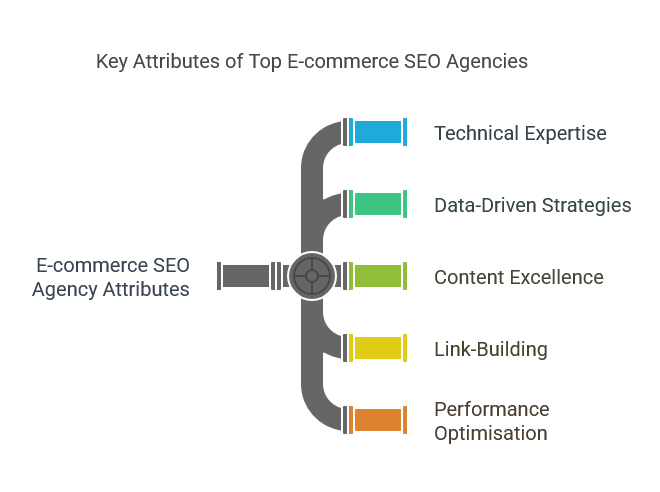
The e-commerce SEO landscape is highly competitive, and choosing the right agency to partner with can significantly impact your business’s success. In 2025, the best e-commerce SEO agencies distinguish themselves through a combination of technical expertise, data-driven strategies, and content excellence. This section explores the key attributes that set top agencies apart, including their approach to technical SEO, content creation, link-building, and overall performance optimisation. Understanding these differentiators is crucial for businesses seeking a trusted partner who can drive measurable growth and long-term results.
Technical Precision & Platform Expertise
Leading e-commerce SEO agencies demonstrate exceptional technical capabilities:
- Comprehensive technical auditing: Top agencies conduct thorough, detailed audits that identify both evident and subtle technical issues affecting search performance
- Platform-specific knowledge: They maintain deep expertise across major e-commerce platforms, including Shopify, WooCommerce, Magento, and BigCommerce
- Implementation capability: Rather than simply providing recommendations, elite agencies either implement changes directly or provide detailed guidance for development teams
- Performance optimisation: They achieve dramatic improvements in site speed, Core Web Vitals, and overall technical health
- Proactive monitoring: Leading agencies implement ongoing monitoring systems that identify issues before they impact rankings
This technical precision removes fundamental SEO barriers, creating a solid foundation for content and authority-building strategies.
Content Excellence & Production Capabilities
Content quality and scalability distinguish premium e-commerce SEO providers:
- Original production processes: Top agencies develop genuinely unique content rather than relying on manufacturer descriptions or AI-generated material
- Scalable systems: They implement efficient processes for creating high volumes of product content without sacrificing quality
- Multi-format capabilities: Leading providers create text, image, video, and interactive content that serves both search engines and users
- SEO-driven briefs: They develop comprehensive content briefs based on competitor analysis and search intent research
- Editorial standards: Elite agencies maintain strict quality control processes to ensure consistency and excellence
These content capabilities ensure that e-commerce sites build meaningful differentiation that improves rankings and conversion rates.
Data-Driven Strategy & Analytics
Sophisticated data analysis capabilities set leading agencies apart:
- Comprehensive tracking implementation: Top agencies set up detailed tracking that captures the complete customer journey
- Competitive intelligence: They maintain robust systems for monitoring competitor strategies, keywords, and market changes
- Regular reporting cycles: Leading providers deliver clear, actionable reports that connect SEO metrics to business outcomes
- Testing frameworks: They implement systematic A/B testing to validate strategic hypotheses before full implementation
- Revenue attribution: Elite agencies track the specific revenue impact of organic search, allowing for accurate ROI calculation
These analytical approaches ensure that strategies continuously evolve based on performance data rather than assumptions or generic best practices.
Platform Versatility & Integration Expertise
The ability to work across diverse e-commerce ecosystems provides significant advantages:
- Multi-platform proficiency: Top agencies maintain expertise across major e-commerce platforms and custom solutions
- Integration capabilities: They understand how to connect SEO strategies with other systems like CRM, ERP, and marketing automation
- Migration specialisation: Leading providers successfully manage complex platform migrations without traffic or ranking losses
- International capabilities: They implement effective multi-language, multi-currency, and multi-region strategies
- Marketplace integration: Elite agencies coordinate SEO with marketplace presence on Amazon, eBay, and other platforms
This versatility ensures that agencies can adapt their approaches to each client’s specific technical environment rather than forcing standardised solutions.
Advanced Link Building & Digital PR
Sophisticated authority-building strategies differentiate premium providers:
- Journalistic approach: Top agencies develop newsworthy stories and original research that attract coverage from authoritative publications
- Relationship networks: They maintain established relationships with journalists, editors, and influencers in relevant industries
- Creative campaign development: Leading providers create innovative, attention-grabbing campaigns that generate both links and brand awareness
- Diverse link profiles: They build varied, natural-looking link profiles that include news sites, blogs, industry resources, and social platforms
- Quality over quantity: Elite agencies prioritise high-value, relevant links over volume-based approaches
These sophisticated link-building approaches create authoritative backlink profiles that outperform basic outreach tactics.
Conversion Focus & Revenue Orientation
The most valuable agencies maintain a relentless focus on business outcomes:
- CRO integration: Top agencies seamlessly blend SEO and conversion rate optimisation for maximum revenue impact
- Revenue tracking: They measure success in terms of revenue and ROI rather than just traffic or rankings
- User experience emphasis: Leading providers ensure that SEO strategies enhance rather than compromise the shopping experience
- Customer lifetime value focus: They develop strategies that attract high-value customers rather than just maximising traffic
- Business strategy alignment: Elite agencies align SEO initiatives with broader business objectives beyond marketing metrics
This revenue orientation ensures that SEO investments directly contribute to business growth rather than merely improving visibility metrics.
Case-Driven Results & Proven Track Records
Demonstrable results differentiate leading e-commerce SEO agencies:
- Documented case studies: Top agencies maintain portfolios of detailed case studies showing specific methodologies and outcomes
- Significant impact metrics: They regularly achieve traffic increases of 147 %+, organic revenue boosts of 144%, and conversion rate improvements of up to 300%
- Long-term client relationships: Leading providers maintain multi-year partnerships rather than short-term engagements
- Industry recognition: They receive awards, speaking invitations, and other forms of peer recognition
- Transparent methodology: Elite agencies clearly explain their approaches rather than relying on “secret techniques” or black-box methodologies
These proven track records provide confidence that agencies can deliver meaningful results rather than just promising theoretical improvements.
Emerging Trends in E-commerce SEO Services for 2025
As the digital landscape evolves, so must the strategies that drive e-commerce SEO success. In 2025, new technologies and shifts in consumer behaviour are reshaping how online retailers approach SEO. From the rise of voice search and AI-driven personalisation to the growing importance of visual content and hyper-local targeting, staying ahead of these emerging trends is crucial for maintaining a competitive edge. This section highlights the key developments shaping the future of e-commerce SEO, offering insights into how businesses can adapt to stay at the forefront of search engine optimisation.
Voice Search & Conversational SEO
The continuing growth of voice interfaces is reshaping e-commerce search strategies:
- FAQ content development: Creating structured question-and-answer content that addresses common voice queries
- Natural language optimisation: Adapting keyword strategies to include conversational phrases and complete questions
- Featured snippet targeting: Formatting content specifically to capture position zero results that dominate voice responses
- Voice commerce preparation: Developing strategies for platforms like Alexa and Google Assistant as voice purchasing grows
- Local voice search: Optimising for “near me” and location-specific voice queries for omnichannel retailers
As voice interfaces become more sophisticated, these optimisation approaches ensure visibility in this growing search segment.
AI-Powered Personalisation & Search
Artificial intelligence is transforming how e-commerce sites deliver personalised experiences:
- Dynamic content delivery: Implementing systems that adjust product displays based on individual user behaviour
- Predictive search optimisation: Leveraging AI to anticipate and optimise for future search trends
- Intent recognition: Using machine learning to match content with user intent better signals
- Personalised search results: Creating customised on-site search experiences based on user history and preferences
- Content enhancement: Using AI to identify content improvement opportunities while maintaining human oversight
These AI applications enhance user experience and engagement metrics, increasing organic search performance.
Video Dominance & Visual Search
Visual content continues to gain prominence in e-commerce discovery:
- Short-form product videos: Creating brief, engaging product showcases optimised for social media and SERP features
- Live shopping integration: Incorporating live video shopping events that generate both engagement and SEO benefits
- Video-first product pages: Building product pages where video is the primary content format rather than an optional addition
- Visual search optimisation: Preparing for the growth of camera-based search by enhancing image metadata and descriptions
- Platform-specific video: Creating unique video formats optimised for YouTube, TikTok, Instagram, and other platforms
With video results gaining prominence in search results, these strategies ensure visibility as user behaviour evolves.
Local & Hyper-Personalised SEO
Geographic and personal relevance are becoming increasingly important:
- Hyper-local targeting: Optimising for particular geographic areas beyond city-level targeting
- Inventory-based local SEO: Highlighting specific product availability at nearby physical locations
- Personalised search results: Adapting to Google’s increasing personalisation of search results based on user history
- Community building: Developing local content strategies that connect with specific community interests and needs
- Omnichannel integration: Creating seamless connections between online search and offline shopping experiences
For businesses with physical retail locations, these strategies create powerful synergies between digital marketing and in-store experiences.
Selecting the Right E-commerce SEO Partner
Choosing an appropriate agency partner requires careful evaluation:
Assessment Criteria for Agency Selection
- Industry experience: Prioritise agencies with specific expertise in your product category and target market
- Technical capabilities: Ensure they demonstrate a deep understanding of your specific e-commerce platform
- Content quality: Review their content samples for originality, engagement, and strategic alignment
- Case studies: Examine documented results for clients in similar competitive situations
- Transparency: Choose partners who clearly explain their methodologies and reporting approaches
- Team structure: Understand who will work on your account and their specific qualifications
- Integration approach: Assess how they plan to work with your existing marketing and development teams
For businesses seeking to enhance their e-commerce website development with effective SEO, selecting an agency with technical and marketing expertise ensures the most effective implementation.
Red Flags and Warning Signs
Specific characteristics should prompt caution when evaluating potential partners:
- Guaranteed rankings: Promises of specific ranking positions suggest outdated or black-hat approaches
- Unclear methodologies: Reluctance to explain particular strategies and techniques indicates potential issues
- Volume-based pricing: Models based solely on content volume often sacrifice quality for quantity
- Limited reporting: Inadequate performance tracking and reporting suggest a lack of accountability
- Over-automation: Excessive reliance on automated processes without human oversight
- Generic approaches: One-size-fits-all strategies that don’t account for your specific business needs
- Short-term contracts: Extremely short commitment periods may indicate a focus on client acquisition over results
Avoiding agencies with these characteristics helps prevent wasted investment and potential damage to organic search performance.
The Strategic Advantage of Specialised E-commerce SEO
E-commerce SEO in 2025 will be a sophisticated, multifaceted discipline requiring specialised expertise in technical implementation, content development, and strategic planning. For online retailers seeking sustainable growth, working with agencies that truly understand the unique challenges of e-commerce will provide significant competitive advantages.
The most successful e-commerce SEO strategies balance several critical elements:
- Technical excellence: Flawless site architecture that supports both search engines and user experience
- Content quality: Original, valuable content that differentiates products and addresses customer needs
- Authority building: Sophisticated link acquisition that establishes credibility and trust
- Conversion optimisation: Seamless integration of SEO with revenue-generating user experience
- Data-driven refinement: Continuous improvement based on performance analytics
By implementing comprehensive strategies that address these core elements, e-commerce businesses can achieve dramatic organic growth, outpace competitors, and build sustainable traffic channels that reduce dependence on increasingly expensive paid acquisition methods.
In the competitive digital marketplace of 2025, these specialised e-commerce SEO capabilities deliver measurable business impact that generic approaches simply cannot match, making the selection of the right agency partner one of the most consequential decisions for online retail success.
About ProfileTree
ProfileTree is a leading digital marketing agency headquartered in Belfast. We serve clients in Northern Ireland, Ireland, and the UK. Our comprehensive service portfolio includes SEO, Content Marketing, and E-Commerce Website Development.
Our team specialises in helping online retailers develop effective SEO strategies that drive measurable business growth through increased organic visibility, improved user experience, and higher conversion rates. To learn more about how we can support your e-commerce SEO efforts, visit our website or contact our team directly.
